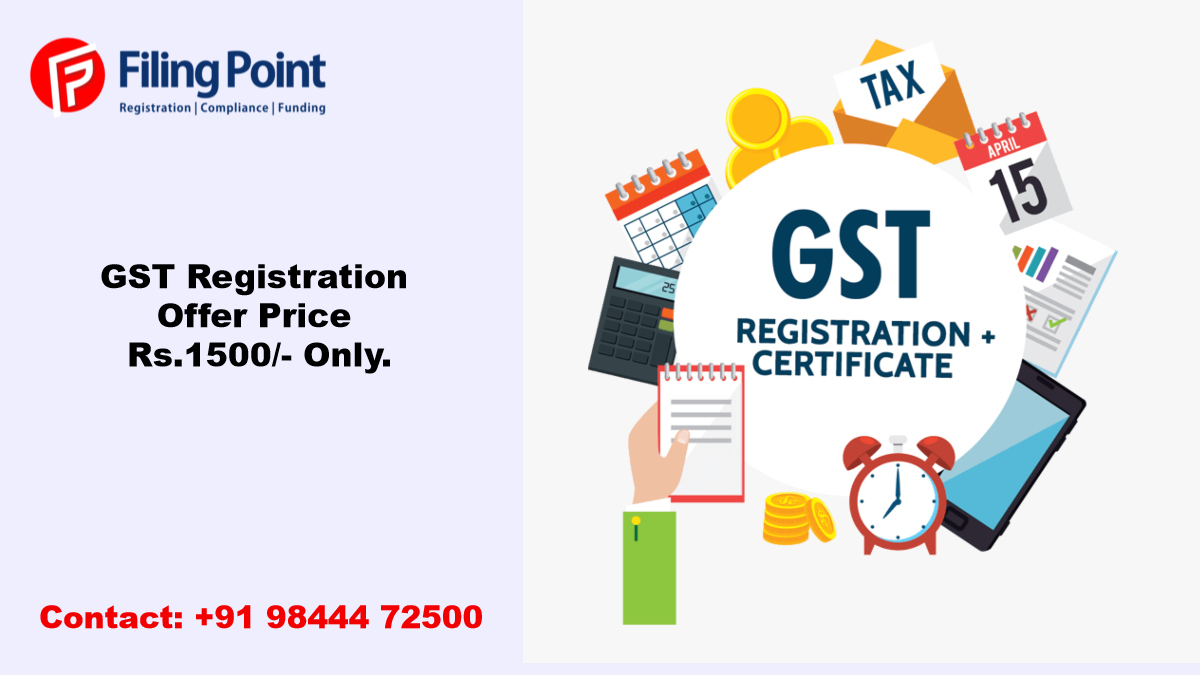Recognizing the Perks of Singapore GST Registration for SMEs
Recognizing the Perks of Singapore GST Registration for SMEs
Blog Article
Browsing the Complexities of GST Registration: Expert Tips and Ideal Practices for Easier Conformity
Browsing the complex landscape of Goods and Provider Tax Obligation (GST) enrollment demands a keen understanding of the developing regulatory framework and meticulous interest to detail. As organizations aim to make certain compliance and avoid mistakes, expert assistance and finest techniques can serve as very useful compass factors in this complicated terrain. From decoding registration demands to utilizing technological devices for streamlined procedures, the trip in the direction of smoother GST conformity is nuanced and diverse. Stay tuned to uncover important techniques and insights that can help companies steer with the intricacies of GST enrollment with skill and self-confidence.
Understanding GST Registration Needs

Along with turn over thresholds, organizations participating in interstate sales or providing taxed services may also be called for to register for GST, even if their turn over is below the recommended limitation (Singapore GST Registration). Recognizing these thresholds and requirements is important to stay clear of penalties and make certain smooth procedures within the lawful structure
Additionally, companies have to collect and prepare the required paperwork, such as evidence of identification, address, company consolidation, and bank account details, prior to initiating the GST registration procedure. Falling short to offer exact information or fulfill the enrollment due dates can result in fines or other legal repercussions. For that reason, companies ought to remain educated about the specific GST registration requirements suitable to their operations to preserve compliance and prevent potential problems.
Organizing Essential Paperwork
Services embarking on the GST enrollment process have to carefully assemble and arrange the vital documentation required for entry. The essential records normally needed for GST registration include evidence of business registration or address, unification and identity proofs of the organization owners or partners, checking account details, evidence of principal business, and permission kinds. Making certain that these papers are easily available and organized can streamline the enrollment procedure and stop denials or delays.
To efficiently organize vital documents, companies must develop a central system for saving and classifying the required documentation (Singapore GST Registration). Using digital storage services can help keep easy access and guarantee that files are firmly kept. Furthermore, establishing a list of all needed papers can work as a helpful device to track what has been collected and what is still needed for submission

Leveraging Technology for Performance
Enhancing operational performance via technical assimilation is paramount for modern-day services browsing the intricacies of GST registration. Leveraging technology can streamline procedures, decrease errors, and ensure timely conformity with GST regulations. One of the vital means modern technology can help in GST enrollment is with making use of automated software options. These tools can assist companies track sales, create invoices, compute taxes, and send returns accurately. By automating these jobs, companies can decrease hands-on mistakes and save time that would otherwise be invested in repetitive management work.
In addition, technology can assist in seamless communication with tax obligation authorities. On-line portals and communication tools make it possible for businesses to submit papers, resolve inquiries, and obtain updates in a more efficient way. This not just speeds up the enrollment process yet also helps in helpful site preserving reliable and transparent interaction with the relevant authorities.
In addition, cloud-based storage remedies supply a safe system for organizations to store and access their monetary information, making sure conformity with GST record-keeping needs. By streamlining data storage and automating procedures, services can improve their overall efficiency and accuracy in GST enrollment procedures.
Proactive Compliance Surveillance

To make sure efficient positive conformity surveillance, organizations need to develop robust inner controls, conduct periodic audits, and take advantage of automation tools for real-time monitoring of GST purchases. Regular training sessions for employees on GST compliance needs can additionally help in producing a culture of compliance within the company. Additionally, engaging with tax obligation specialists or experts can provide valuable understandings and guidance on navigating intricate GST laws.
Engaging With Specialist Specialists
Engaging experienced tax obligation professionals can considerably strengthen a business's understanding and conformity with intricate GST laws. Specialist consultants bring a wide range of understanding and experience to the table, aiding organizations navigate the complexities of GST enrollment easily. By leveraging their competence, firms can guarantee exact filings, lessen the risk of errors, and stay updated with the most recent governing adjustments.
When engaging with expert consultants, it is vital to pick professionals with a solid performance history in GST conformity (Singapore GST Registration). Try to find professionals that have a deep understanding of the appropriate legislations and guidelines, in addition sites to experience dealing with organizations in your industry. Efficient communication is crucial in this partnership, so see to it to plainly specify your assumptions and develop regular touchpoints to go over progress and attend to any type of problems
Moreover, professional consultants can provide important understandings and recommendations on maximizing your tax method, identifying prospective cost-saving possibilities, and improving your conformity procedures. Generally, spending in professional working as a consultant solutions can go a long means in ensuring smoother GST compliance and staying clear of costly errors.
Conclusion
In final thought, navigating the complexities of GST enrollment calls for a thorough understanding of the needs, company of crucial paperwork, leveraging modern technology for effectiveness, proactive conformity surveillance, and engagement with expert consultants. By complying with these best techniques, services can make certain smoother compliance with GST guidelines and prevent possible penalties or penalties. It is vital to stay educated, positive, and attentive in handling GST enrollment to maintain compliance and promote financial honesty.
To ensure conformity with tax guidelines, businesses need to thoroughly recognize the elaborate demands for GST registration. Item and Provider Tax Obligation (GST) is a value-added tax imposed on a lot of items and services best site in a country, making it crucial for businesses to register for GST to prevent legal consequences.Furthermore, services must gather and prepare the needed documents, such as proof of identity, address, service unification, and financial institution account details, before starting the GST registration procedure. Services should stay notified about the particular GST registration requirements suitable to their procedures to preserve compliance and stay clear of potential concerns.
The crucial papers usually required for GST registration consist of evidence of business registration or unification, identity and address proofs of the company proprietors or companions, bank account information, evidence of major location of organization, and authorization forms.
Report this page